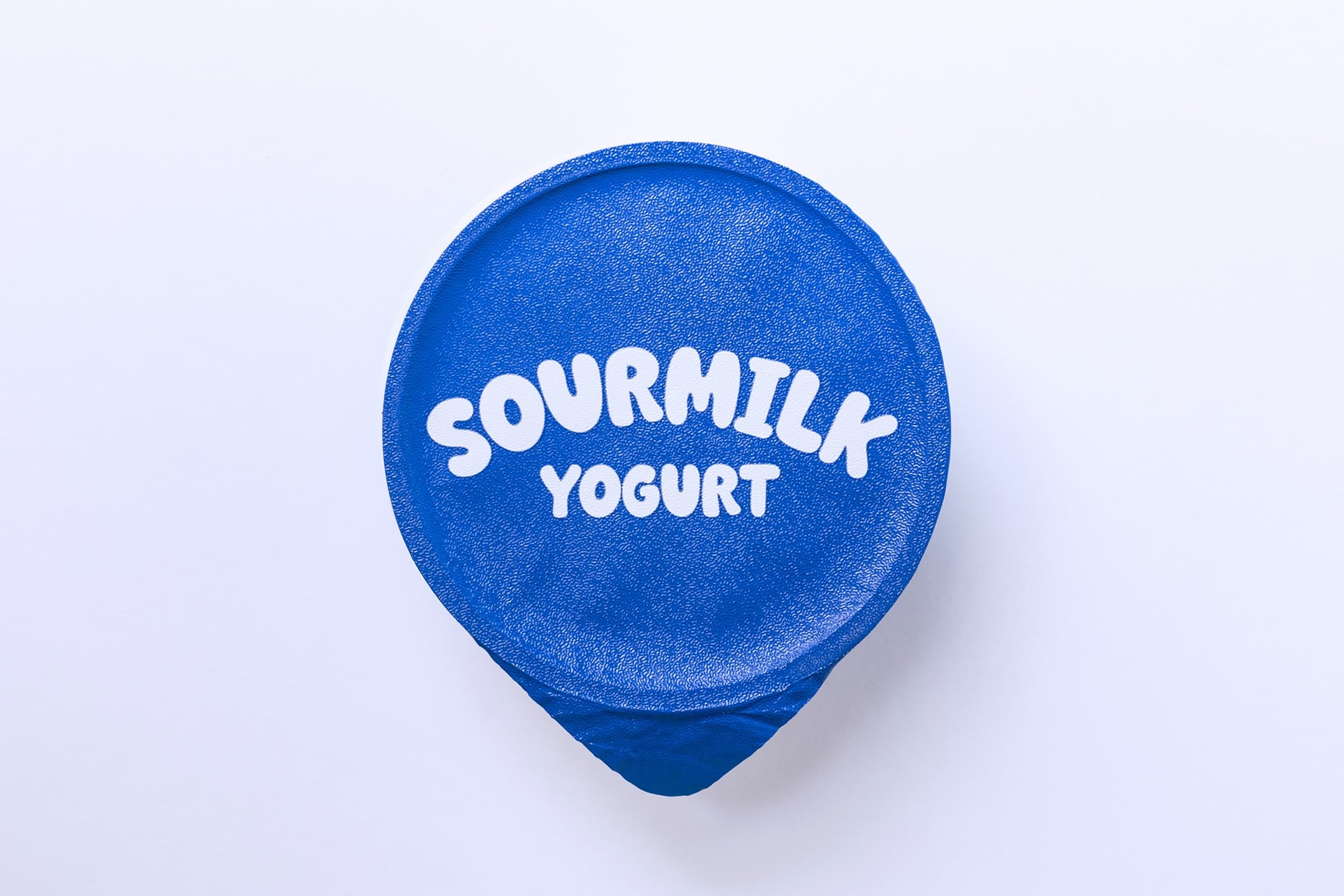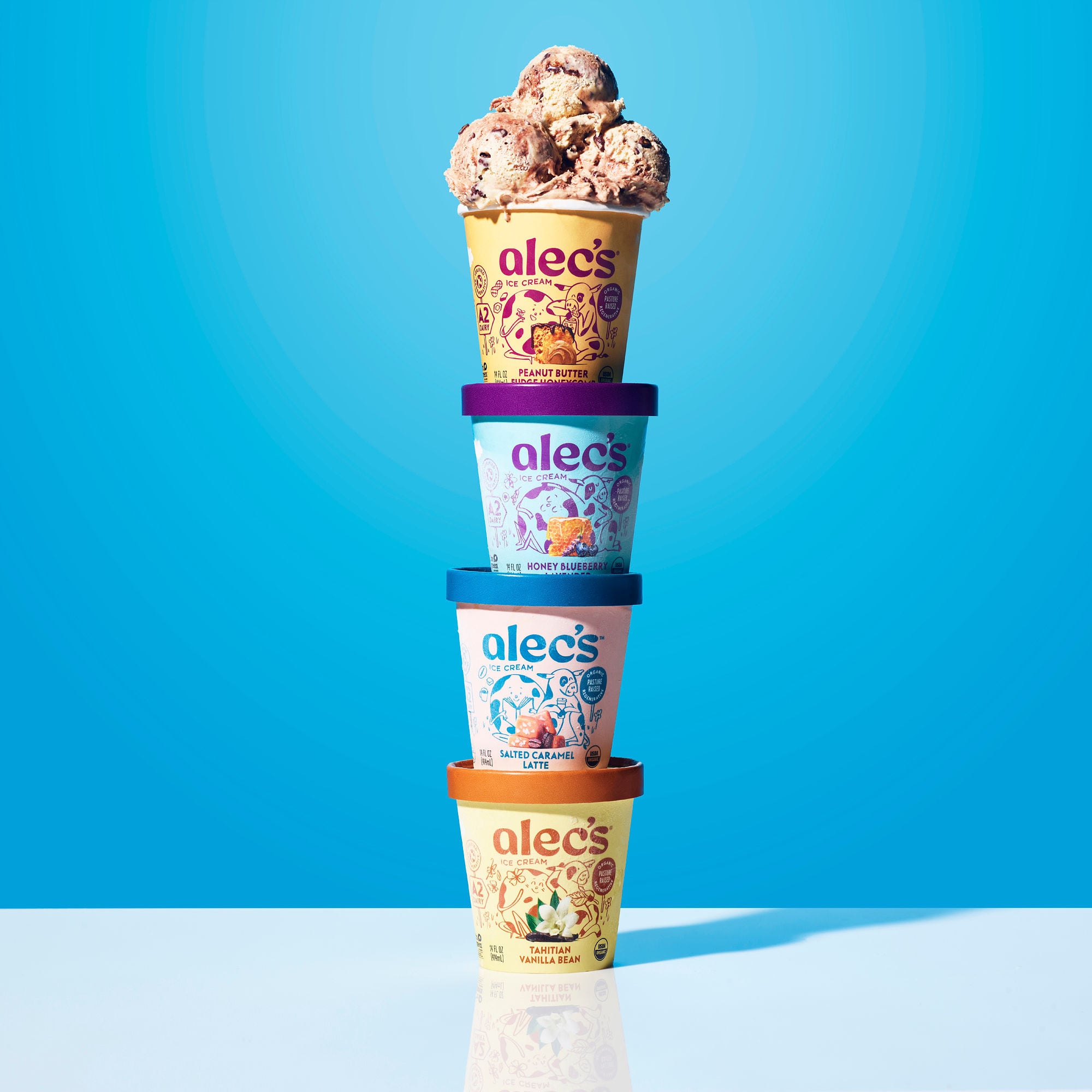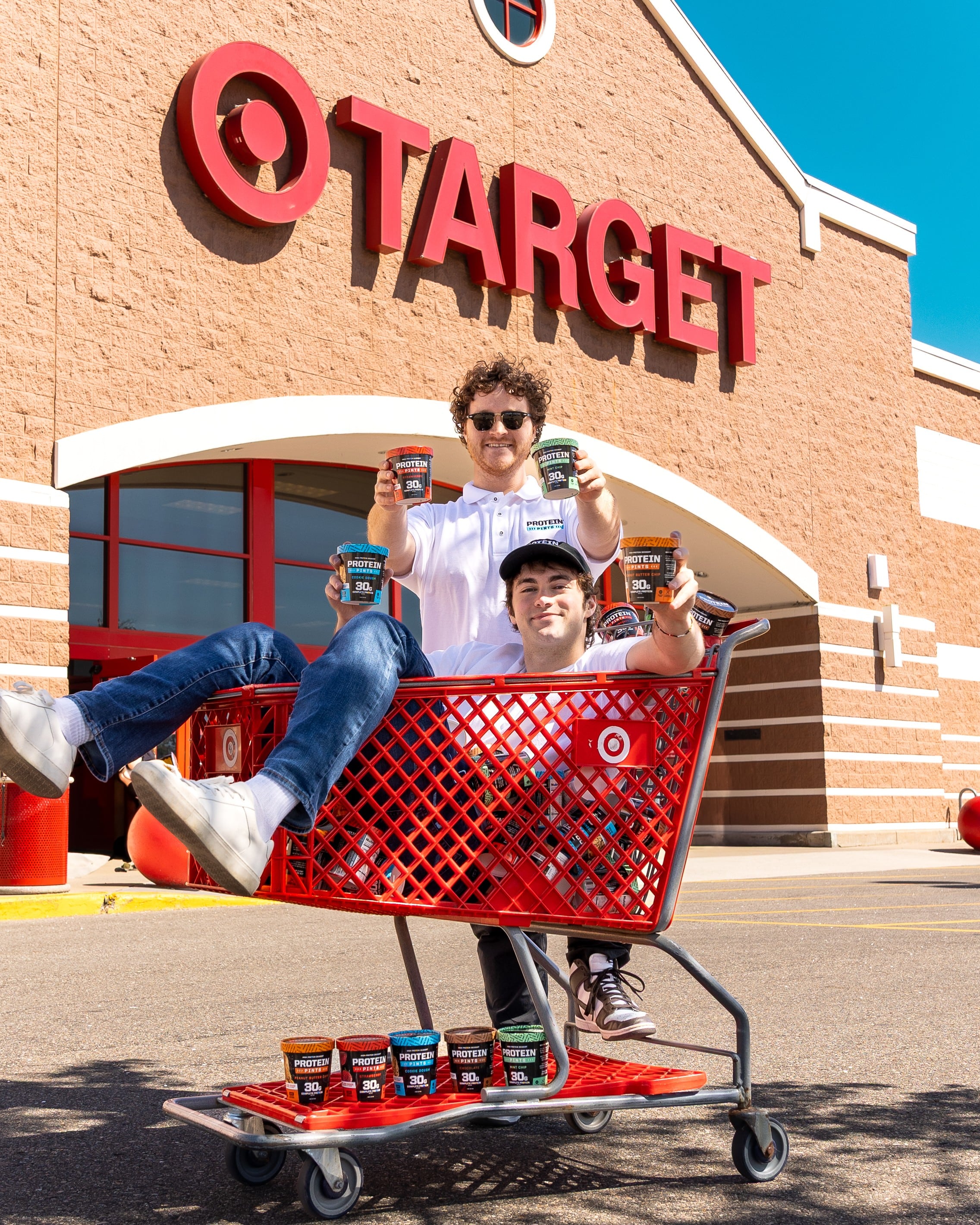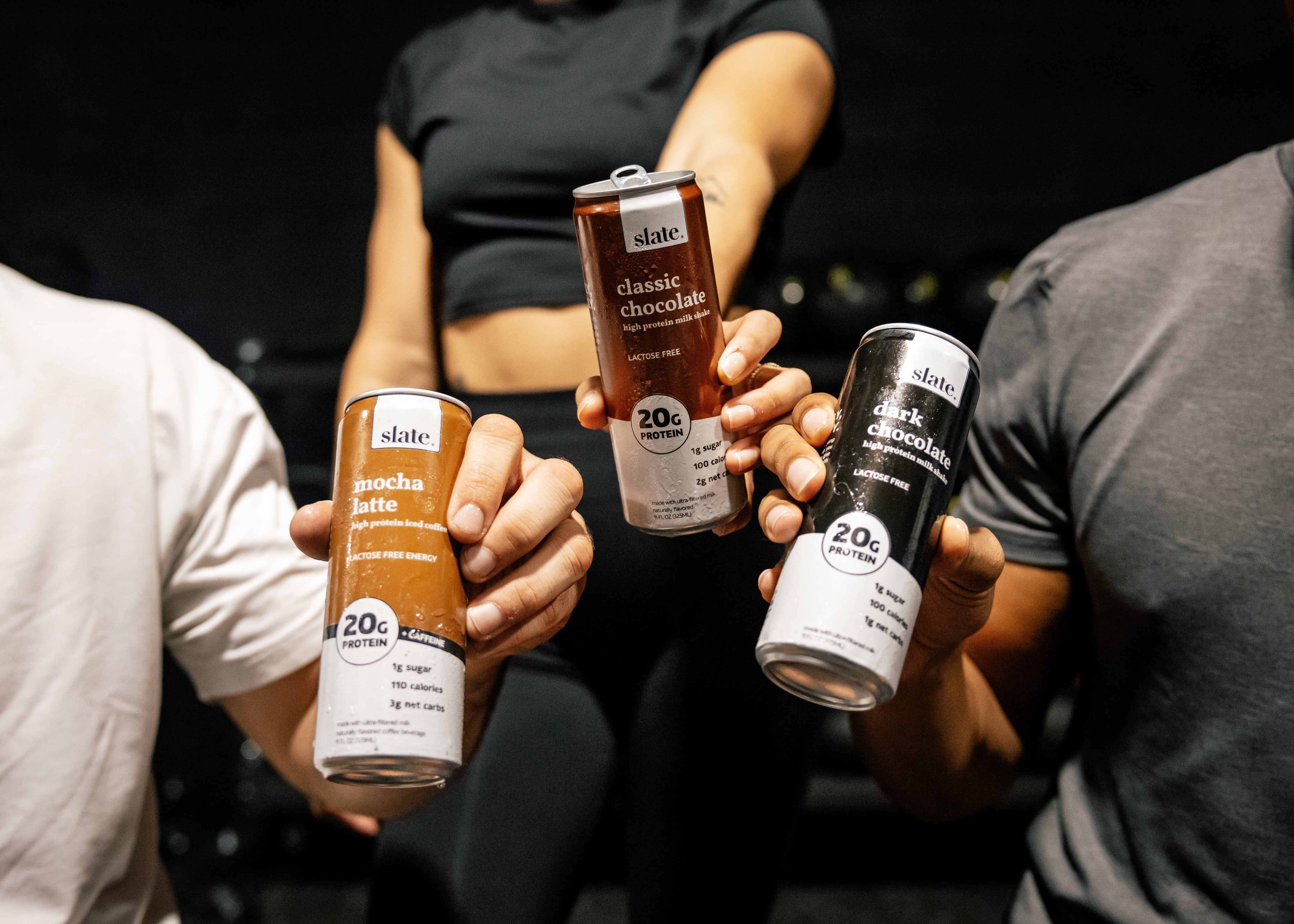About Pioneers
This piece forms part of an article series spotlighting emerging players in the functional dairy space.
See also: Slate Milk / Protein Pints / Alec's Ice Cream
From computer science to gut health science, Elan Halpern has been on a journey of discovery – and continues down this path.
The co-founder of New York City-based functional yogurt brand Sourmilk says its probiotic, grass-fed organic dairy product is formulated to be ‘a probiotic supplement in food form’ and uses clinically-studied probiotic strains that deliver high enough CFUs to make real positive impact on gut health.
The company, which is launching in retail this fall, has bet on a rather novel D2C distribution model involving Halpern and fellow co-founder Kiki Couchman riding bikes across NYC to hand-deliver brown paper bags filled with yogurt cups.
The duo are now readying for an imminent launch in retail and grapple with considerations around manufacturing, warehousing, distribution, and pricing. Will the new brand stand out in the crowded dairy aisle?
Besides offering ‘yogurt that works’, the company is selling a compelling brand story: and wants to maintain its consumer-first model. Here’s how Halpern’s journey into the food business started – and where it’s heading.

What led you down this rabbit hole (of food entrepreneurship)?
Despite majoring in computer science at Stanford and starting my career as a product manager in tech, I’ve always been fascinated by the intersection of food and health. Before college, I worked at a Michelin star restaurant, and at Stanford, I spearheaded multiple nutrition programs.
What struck me then – and still drives me now – is that food isn’t just fuel. It’s one of the most powerful levers we have to optimize both physical performance and mental well-being. For me, entrepreneurship in food became the most direct, tangible way to help people feel and perform at their best every single day.
How did Sourmilk come about? What attracted you to the functional dairy space?
A few years ago, I was struggling with chronic gut health issues – bloating, inflammation, brain fog. Like two-thirds of Americans, I accepted it as “normal” until I dug deeper and realized our microbiome plays a much greater role in our overall wellbeing than I initially thought. It’s foundational: 70% of the immune system resides in the gut, and 90% of serotonin is produced there. Yet most people aren’t getting the probiotics they need to thrive.
As a D1 athlete, I ate Greek yogurt every day after practice. I thought I was doing something good for my gut and body – but when I looked at the science, I realized most yogurts on the shelf don’t move the needle for your microbiome. So I turned to making my own yogurt, one that was truly designed to benefit gut health, absent additives, stabilizers, or trace pesticides found in conventional dairy.
Rather than creating another pill or powder supplement, we believe the way you help people reach health outcomes is by meeting them where they are – with the foods they’re already eating – and truly making them good for you. That’s how Sourmilk started. After years of making my own yogurt at home, Kiki [Couchman, co-founder] and I decided to turn it into something more people can access.
What have been some of the biggest learning curves so far?
Our biggest learning curve has been to push back on the “standard CPG playbook.” Most companies don’t start marketing until they have a product – we started marketing before we even started working on it.
“Most perishable CPG brands wait until they have a distributor and retail contracts before selling – we sold over 5,000 yogurts by hand in New York City, on bikes."
And while many brands outsource manufacturing and never step foot in the factory, we’re hands-on with every single production run.
The lesson is that you don’t always need to follow the traditional playbook to be successful. In fact, sometimes the alternative path – scrappier, more personal, more transparent – leads to deeper customer connection and better results.
And what have been the biggest (positive) highlights?
The greatest highlight for us has been seeing the real impact on people’s health. We have customers who come back week after week because, for the first time in years, they’re experiencing regular digestion and relief from chronic issues.
That’s why we started this company: to help people achieve optimal gut health, and in turn, optimal overall health. Selling thousands of cups is exciting – but hearing those stories is what makes it motivating.
How unique is Sourmilk’s positioning on the market? How do you stand out as a brand?
There’s truly nothing like us on the shelf. From a product standpoint, we designed Sourmilk to be the most functional yogurt for your gut – essentially a probiotic supplement in food form. Additionally, we’ve been able to achieve an entirely new texture than other Greek yogurts – one that is creamy but also fluffy and light where most other Greek yogurts tend to be heavier and almost dry.
From a brand and go-to-market standpoint, we’re doing things entirely differently. The dairy aisle is dominated by legacy brands that all look and sound the same. We’re bold, we’re building in public, and we’re taking a new approach to grab consumer attention – whether it’s our name, our packaging, our “drug deal” distribution model, or how transparent we are with customers about the messy behind-the-scenes. That authenticity is rare in food, and it’s why people connect with us.
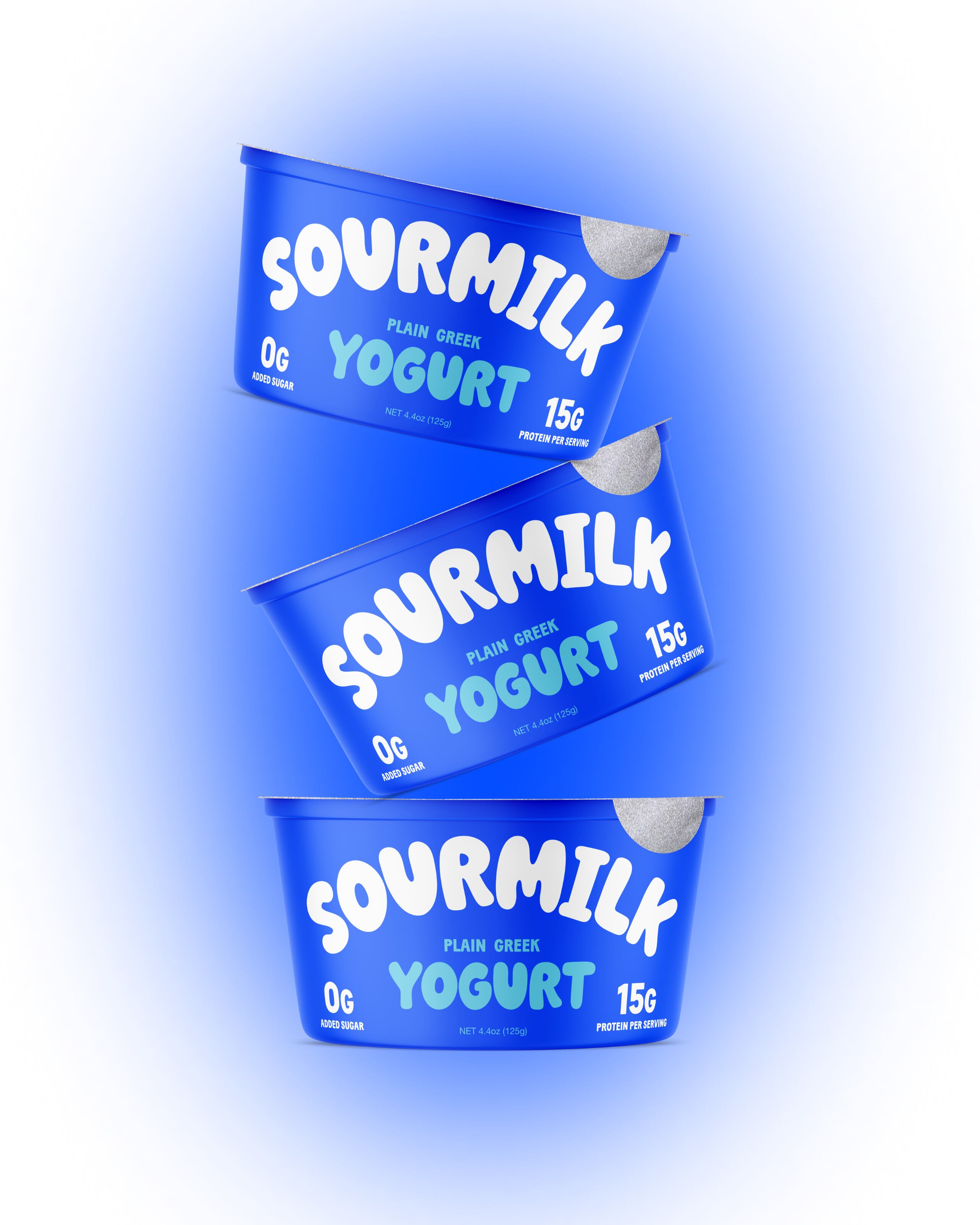
How are you distributing your products at the moment and what is your strategy going forward?
Our current distribution model is what we’ve coined the “Drug Deal Model”. Customers pre-order online, then meet us at designated pickup spots around the city. We show up with brown paper bags of yogurt, hand it off, and often stay to chat about gut health. We even send out calendar invites for pickup – the whole thing has a ritual to it.
In just a few months, we sold over 5,000 units this way. It’s grassroots, scrappy, and builds an intimacy with customers that you can’t replicate on a grocery shelf. Our goal was to build a loyal customer base in NYC who have been eating our yogurt all summer before entering a retail store.
Beyond that, we’ve expanded into office deliveries and restaurant partners. This fall, we’ll launch with our first retail partners, scaling up while keeping that same sense of community and connection.
Probiotic content is a key part of your USP. What makes your product superior to other Greek yogurts?
In terms of probiotics, most yogurts fall into one of three traps:
Pasteurized after fermentation: in order to extend shelf life, many yogurt companies pasteurize their product which kills off all bacteria, including the good ones.
Only use the classic yogurt strains: there are thousands of different bacteria strains, the two that are found in yogurts make delicious tasting yogurt but there are many more that have incredible gut health benefits that most yogurt companies do not include.
Not enough bacteria: even the companies that do claim to add probiotics they generally don’t tend to have enough to make a dent on the 100 trillion bacteria residing in our guts.
“We designed Sourmilk from the ground up to be a yogurt that benefits your gut.”
We use clinically-studied probiotic strains, never kill them off in processing, and deliver high enough CFUs to actually impact gut health. In other words: we’re not just a yogurt that claims probiotics – we’re a yogurt that works.
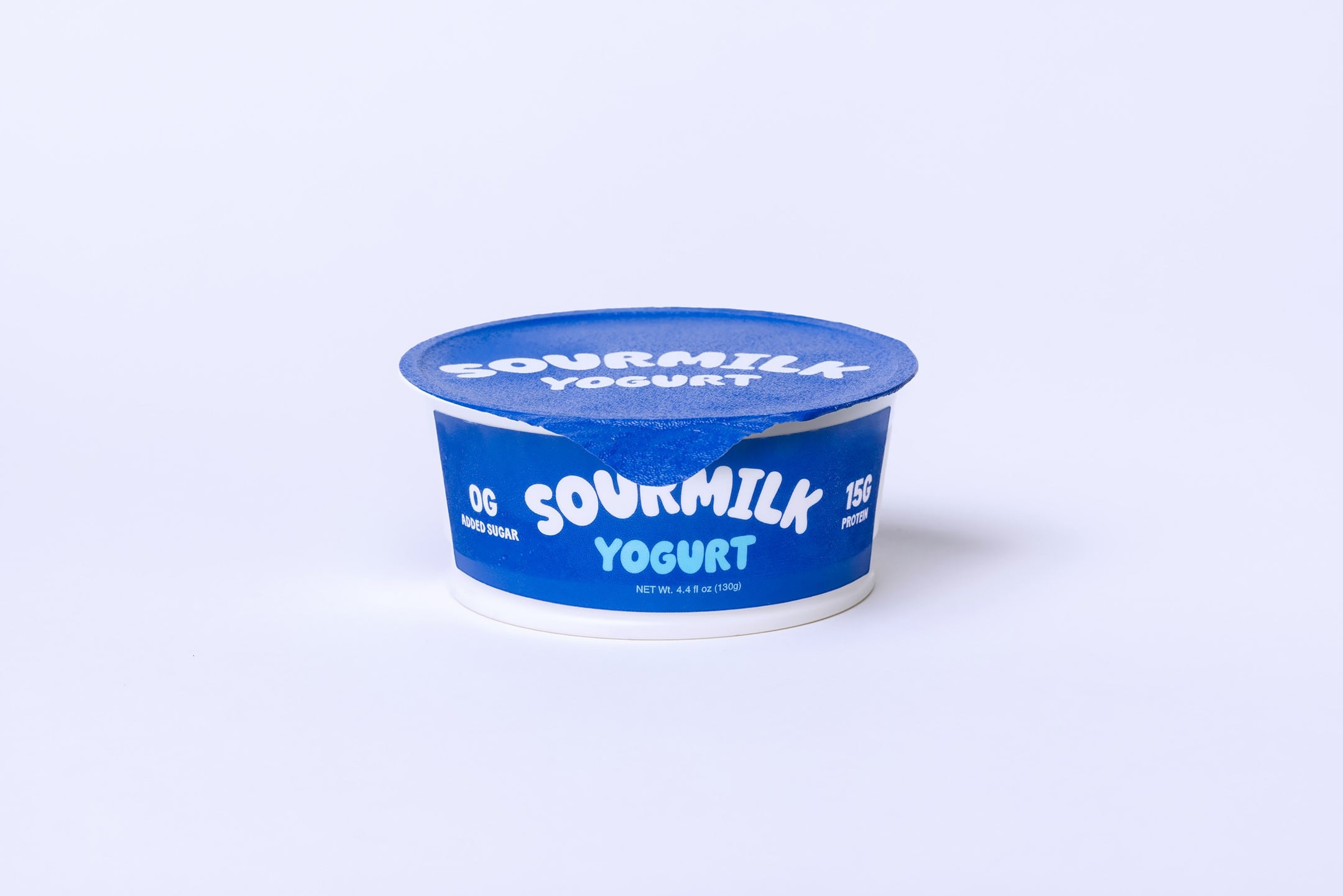
Protein is one of the main growth drivers in dairy today. How important was protein content for your brand? How do you see the category evolving?
Protein is critical – but how it shows up matters. Today we’re seeing ‘protein mania’ with protein being added to everything from chips to ice cream. The problem is that many of these products are highly processed, and there’s strong data linking ultra-processed foods to negative health outcomes. In fact, studies show that ultra-processed foods increase risk of obesity, cardiovascular disease, and even all-cause mortality.
We’re lucky: dairy is naturally high in protein. One cup of cow’s milk has 8g of protein, and through fermentation and straining, we’re able to achieve 15g of protein per serving without additives, isolates, or artificial manipulation, and without compromising on taste or texture. That’s the future we believe in: whole foods, minimally processed, delivering both the protein people want and the functional benefits their bodies need.
What do consumers want from a functional yogurt today? What are the must-haves in a product?
Three big trends are driving demand for functional yogurts:
Protein: People want higher protein intake, and they want it in everyday foods that taste good.
Gut health: Education around the microbiome is growing. More Americans are taking probiotics than ever before, but supplements are expensive – we’re excited to help people achieve health outcomes through foods they are already eating.
Whole foods: There’s a growing shift away from artificial sweeteners and additives, toward simple, real ingredients.
What’s next for Sourmilk?
Next, we’re focused on expanding distribution – from our grassroots model into retail – while continuing to innovate on formats that make gut health accessible and delicious for more people.

